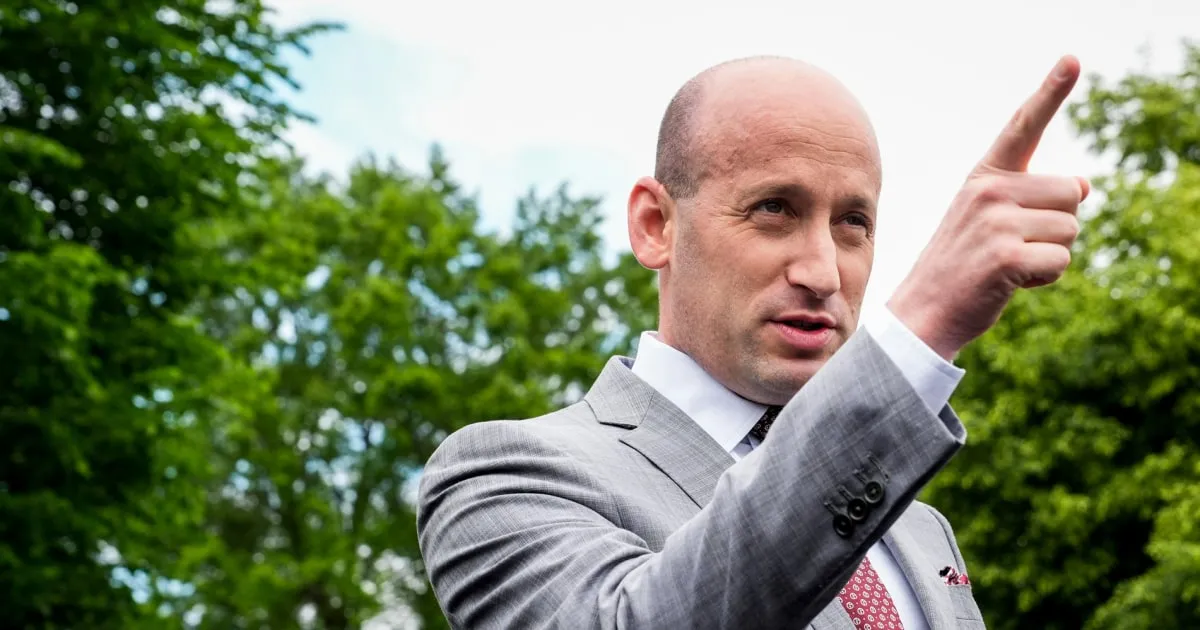
Legal experts and Democrats voiced increasing alarm over the weekend regarding discussions among Trump administration officials about the potential unilateral suspension of habeas corpus—a fundamental legal right in the United States—without obtaining congressional approval. The writ of habeas corpus, which has its roots in centuries of legal tradition, allows anyone detained in the U.S. to see a judge, challenge the government's evidence against them, and present a defense.
On Friday, White House Deputy Chief of Staff Stephen Miller downplayed the significance of habeas corpus, suggesting that the administration was actively considering the option of suspending it unilaterally. “That’s an option we’re actively looking at,” Miller told reporters at a White House briefing, raising concerns among legal scholars and lawmakers alike.
In response to Miller’s comments, Steve Vladeck, a constitutional law professor at Georgetown University, labeled the statement as “factually and legally nuts.” He described it as the “most remarkable (and remarkably scary) comments about federal courts that I think we’ve ever heard from a senior White House official.” Other legal scholars echoed Vladeck's sentiments, strongly contesting Miller’s assertion that the president could unilaterally suspend habeas corpus, which translates to “that you have the body.”
Vladeck and several other experts highlighted a long-standing legal consensus that only Congress holds the authority to suspend this right. They pointed to Article 1 of the Constitution, which stipulates, “the Privilege of the Writ of Habeas Corpus shall not be suspended, unless when in Cases of Rebellion or Invasion the public Safety may require it.” This clear constitutional framework emphasizes the checks and balances that govern the suspension of habeas corpus.
Over the weekend, senior Republicans largely avoided addressing Miller's controversial statement. Meanwhile, Democrats contended that the Trump administration is leveraging its immigration policies to undermine judicial authority, bypass established legal protections, and dangerously expand presidential power. “The one power you cannot give the executive is the power to arbitrarily imprison people who oppose the regime,” said Sen. Chris Murphy (D-Conn.) at a Democratic rally in Sarasota, Florida. He warned, “Today it may be an El Salvadorian immigrant or a foreign student, but tomorrow it is you or me. The slope to despotism can be slippery and quick.”
Reports from CNN suggest that President Trump has been personally engaged in discussions regarding the potential suspension of habeas corpus. He alluded to this matter in a statement to reporters on April 30, saying, “There are ways to mitigate it and there’s some very strong ways. There’s one way that’s been used by three very highly respected presidents, but we hope we don’t have to go that route.”
Trump's comments likely referenced past presidents who have suspended habeas corpus: Abraham Lincoln and Andrew Johnson during the Civil War, Theodore Roosevelt in response to a rebellion in the Philippines, and Franklin Delano Roosevelt in Hawaii after the Pearl Harbor attack. However, recent Supreme Court and federal rulings affirm that anyone detained in the U.S., including migrants, has the right to appear before a judge and mount a defense. Trump and Miller have openly criticized these decisions.
Miller has referred to judges who oppose the administration's stance as “a handful of Marxist judges” executing “a judicial coup.” Legal scholars like Ilya Somin, a law professor at George Mason University, have countered that Miller’s assertion regarding the president's power to suspend habeas corpus is patently false. “Habeas corpus can only be suspended under the Constitution in times of invasion or insurrection. None of that is happening now,” Somin stated. He emphasized that such powers rest solely with Congress, not the president.
In alignment with Somin, Jonathan Adler, a law professor at Case Western Reserve University, cited a 2004 Supreme Court ruling where conservative Justice Sandra Day O’Connor confirmed that only Congress has the authority to suspend habeas corpus. O’Connor noted that habeas corpus serves as a “critical check” on executive power, ensuring individuals are not unlawfully detained.
The implications of potentially suspending habeas corpus are profound. Professor Stephen Gillers from New York University Law School articulated that the Trump administration’s efforts to discredit the judiciary and maximize presidential power could undermine the essential checks and balances designed to protect individual rights. The denial of habeas corpus jurisdiction, particularly for immigrants, poses a significant threat to the foundational principles of American democracy.